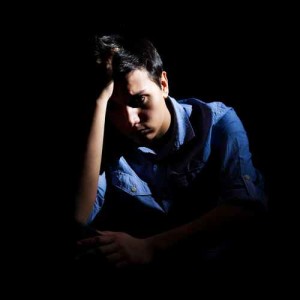Depression – Treatment & Counseling
 Here it is again – Sunday night, I have to get up and go to work again tomorrow morning. It was another boring weekend. I didn’t really feel like going out with anyone so I stayed home and watched TV, played video games, Facebooked, and … watched more TV. It seems like all my friends are busy doing thing with their boyfriends, girlfriends, or spouses or just don’t call anymore. I’m not sleeping through the night and I wake up obsessing about my problems. I’ve lost weight because my appetite has decreased over the last few months. I’ve noticed that I get “chippy” or irritable at work which is not like my normal self. Sometime I will even think to myself “What is my purpose for even being in this world?” Am I depressed?
Here it is again – Sunday night, I have to get up and go to work again tomorrow morning. It was another boring weekend. I didn’t really feel like going out with anyone so I stayed home and watched TV, played video games, Facebooked, and … watched more TV. It seems like all my friends are busy doing thing with their boyfriends, girlfriends, or spouses or just don’t call anymore. I’m not sleeping through the night and I wake up obsessing about my problems. I’ve lost weight because my appetite has decreased over the last few months. I’ve noticed that I get “chippy” or irritable at work which is not like my normal self. Sometime I will even think to myself “What is my purpose for even being in this world?” Am I depressed?
What do we mean we say we are depressed? All of us occasionally feel sad about events that happen in our daily life. Feeling rejection from a relationship, not being chosen for a job, the death of a friend or pet, hurtful criticism from a parent or boss, and countless other situations. Most of the time we get over this sadness in a few days and return to our normal level of function. Depression is characterized by continued sadness for weeks and months beyond the original cause or event. There are several forms of depression – major depression, persistent depressive disorder, and bipolar disorders.
- Major Depressive Disorder is a depressive episode of at least 2 weeks or more with at least 5 of the following symptoms – depressed mood most of the day, loss of interest in activities, significant weight loss or weight gain, loss or increase in appetite, loss of sleep or excessive sleep, loss of energy, increased restlessness, fatigue, feelings of worthlessness, decrease concentration, and recurrent thoughts of death or suicidal thoughts.
- Persistent Depressive Disorders I often refer to this form of depression as chronic moderate depression. Symptoms include poor appetite or overeating, loss of sleep or excessive sleep, low energy, poor concentration, difficulty making decisions, and feelings of hopelessness. This form of depression is not as severe as major depression but sometimes progresses into a major depressive episode.
- Bipolar Disorder This type of depression is not as common as major or persistent depressive disorders. Bipolar disorder is sometimes referred to as manic-depressive disorder. This form of depression is defined by cycling mood changes – from extreme highs (mania) to extreme lows (depression).
Treatment for depression is the most common reason that people seek mental health treatment in this country. Most people who are suffering from depression either don’t realize that they are depressed or just avoid seeking treatment. The good news is that depression is very treatable with counseling, medication (if necessary), and support resources (support groups, community groups, online sites). Weekly outpatient counseling can help you overcome depression and return to being happy and optimistic about yourself. Again, depression is very treatable. Choose a healthier path and make the call.
